Ayatollah Khamenei’s keen interest in attending poetry recitations and making pronouncements about poetry, novels and literature is a well-known aspect of his public persona. But what does this tell us about the real character, behind the facade of the Supreme Leader of Iran, whom Khamenei has been playing for more than 30 years?
Faraj Sarkohi is an Iranian literary critic and journalist. In 1997, he was arrested and sentenced to death in a secret trial. Due to the ensuing international pressure his verdict was reduced to one year in prison and he was eventually permitted to leave Iran in 1998, and now lives in Germany.
Ever since Khamenei became leader of the Islamic Republic, he has met every year with a group of poets in what is now officially termed a “poetry recitation session in the presence of the exalted Supreme Leader.”
Last year, on the occasion of one of these meetings, we held a phone interview with Sarkohi to address the above question. We wanted to publish the interview after a review of the transcript by him, but for reasons we shall not digress to here, this did not take place.
This year’s annual poetry reading session was canceled due to the coronavirus outbreak. But since the interview was not about a specific session in a specific year, we surmised that the cancellation was as good a reason as any to finally publish the interview.
***
The shadow of a smile passes touches his lips, and keeping his head down, he murmurs, “Bravo!”. As the poet is recites the succeeding verses, he pre-empts him by completing the rhyme, then laughs and says “Well done!”
Most of the pictures of Khamenei smiling come from these poetry readings. When a poem is recited in his presence, he assumes the role of a literary authority, praising or correcting the poet and sometimes discussing the metric pattern or the style of Persian poetry. In televised speeches he occasionally makes references to literary works, adopting the posture of a cultivated aficionado.
But how well-versed in literature is Khamenei? We asked Sarkohi.
What is Khamenei’s reason for holding these annual meetings with poets? Why do Iranian media and especially his own website cover the poetry recitals in such detail?
Sometimes the wounds suffered in childhood and adolescence are never healed and affect one’s life, deeds, thought and psychology, without that person being aware of it.
As the years go by, these wounds metamorphose, taking different shapes and forms and often changing so as to become unrecognizable. Psychologists have written extensively on compensation mechanisms: on the suppression of strong longings, and on the displacement of suppressed longings.
In his youth, Adolf Hitler longed to become a painter but did not pass the painting academies’ entry exams. Nevertheless, he painted up until the end of his life. Part of his hatred toward some of the most successful painters in the world was a displacement of his failure to study at art school: a kind of unconscious compensation mechanism. Of course, the Nazis’ attacks on paintings that they considered degenerate was rooted in their ideology.
Stalin considered himself to be a theoretician in his younger days. But compared to other leaders of the Bolsheviks, his knowledge and his ability to theorize were insignificant. Nobody believed that he was a theoretician. When he was in power, the compensation mechanism turned this suppressed longing into efforts to be recognized. “Stalin, the wise leader, the sage, the theoretician” was one of the building blocks of his personality.
Once in power, all dictators, consciously or unconsciously, try to heal the wounds they suffered when they were young. As a young man, Mr. Khamenei wished to be a poet.
According to what himself has said in his authorized biographies, in his youth Khamanei participated in literary societies, listened to poems, recited poetry and knew a number of club poets, but even among them he was not successful. Khamenei claims to have been a “poetry expert” but there is no evidence that they recognized him as such.
Who were the “club poets”?
From late 1930s onward, first Nima Yoshij and then the poets who came after him would transform Persian poetry. Simultaneously there were poets whose style was described as “neoclassical”, such as Fereydoon Moshiri, Parviz Khanlari, Nader Naderpour and Sayeh [Houshang Ebtehaj]. And of course, there were also highly creative poets such as Mohammad Taghi Bahar who still wrote poetry in the classical style.
But in Iran we also had plenty of shallow and below-average “talent” who imagined themselves to be poets but were devoid of any poetic flair or skill. By composing rhythmical and rhyming verses, by imitating clichés from the past that had become threadbare from repetition, by using “innovative techniques”, as they called them, and with the encouragement of friends and relatives, they reinforced this illusion.
This group had clubs in which they recited their so-called poetry to each other. What they recited in these gatherings were shallow imitations of the classics. Poems by Messrs. Khomeini and Khamenei fall into this category.
Were the themes of club poetry mostly religious?
No. The themes were generally taken from classical Persian poetry: mysticism, love, the pain of separation from the beloved, and so on. In language, in form, in structure, in themes and in content, they were imitators of tired clichés taken from the classical poets.
Among the club poets there were also mullahs who took the clichés of classical poetry and merged them with religious themes.
You mentioned that Mr. Khomeini also wrote poetry. He did, but it seems that he wrote poetry mostly for himself and he did not consider it that important. Right?
Khomeini was a seminary tutor who later became a religious authority and then the undisputed political leader of the Islamic Republic. He was quite aware of his own status. Others, in whose judgment Khomeini believed, accepted his status and qualifications as a teacher and later as a religious authority, and finally as their political leader.
Khomeini wrote poetry in the style of the club poets but did not publish it, because being recognized as a poet was not important to him and he had no need of it.
But being recognized as a poet, as a literary scholar and a “sage”, is a deep psychological yearning for Mr. Khamenei. This is compensation for his failure to be recognized as a poet in his youth. It goes back to the same earlier psychological wound that I mentioned earlier.
Then-authorities on poetry such as Karim Amiri Firuzkuhi and Mehdi Akhavan-Sales did not recognize Mr. Khamenei. He himself has said as much. “I used to attend the meetings of these societies and I analyzed and critiqued the poems,” he has written. “They appreciated me a lot. Then one day Amiri Firuzkuhi told me ‘it is a pity that you waste your time on poetry.’” Amiri Firuzkuhi was among those whom Khamenei recognized as a poetry expert, and his opinion was important to Khamenei.
Firuzkuhi was using a roundabout way of expressing himself that is part of our culture, especially when the subject is present. In Iran, even if one believes that somebody is unfit for a job – any job – and never will be, this is the kind of language one would use, so as to not say it explicitly and offend the other person. Mr. Khamenei quotes Amiri Firuzkuhi’s statement with pride but what Amiri Firuzkuhi really meant was that Khamenei had better find something else to do.
Akhavan-Sales was one of the most creative poets of the school of Nima Yoshij, a scholar of classical poetry, and could write very good poetry of that kind as well. He was friends with some of the classical-style poets such as the excellent Emad Khorasani. Whenever Akhavan-Sales visited Mashhad [where Khamenei was born and raised], the club poets flocked to him. They considered him an authority and if he said that one of this number was a good poet, it was a feather in that person’s cap. Mr. Khamenei was very interested in receiving this accolade from Akhavan-Sales, but he never did.
is the open wound in Khamenei’s psyche: he wanted to be recognized as a poet but those whom he believed to be authorities, including these two, did not accept him as such.
The power that he enjoys gives him the ability to put balm on this wound. He can bring in a group of people to read poetry in the presence of their “wise leader, the poet and literary scholar and authority” so that he can express his views, and his views are received as holy writs.
There will always be sycophants around and Khamenei loves to don the mantle of a literary authority. Khomeini did not behave this way because he did not need to be recognized: he was confident about his status.
Among the mullahs and according to their standards, Mr. Khamenei is a good speaker. He speaks Persian correctly and precisely, his sentences are effective and to the point, his speeches do not meander and his voice carries well. In sum, he has most of the characteristics of a good orator but he never says “I am a good orator” and never asks anybody to say that he is. Why? Because he is one, knows this and does need others to confirm it.
But he is not a poet or an expert in literature. No matter how many times they tell him he is, the open wound of failure from his youth reminds him that he is not.
In these poetry sessions in the presence of Khamenei, there are certain words of praise that are often repeated.
The words and phrases uttered by Mr. Khamenei in these meetings are the same ones that were common at poetry clubs before the revolution. At the time, these catchphrases were the subject of satire: “Bravo”, “Well done”, “Twice sweet”, “Way to go”, and so on. Mehdi Soheili, for example, was the host of a radio poetry competition program and also a club poet. When somebody recited a verse he liked, he would say “Well done, twice sweet,” meaning he wanted the contestant to repeat the verse. These words were used extensively in all the satirical journals at the time.
Sometimes in his speeches, Ayatollah Khamenei quotes from literature and famous novels. Is he really as familiar with literature as he purports to be?
Before he became the Supreme Leader, Khamenei was a mullah who wrote poetry and read literature but of a kind that did not rise above his own taste. He has read works from the lowest point in Russian letters: for instance, works of socialist realism from the time of Stalin. He continues to quote from them as though such a novel must have a message, or must serve this or that idea.
A few years ago, he said that Les Misérables was the best novel in the world. He read Les Misérables as it was translated into Persian by Hossein Gholi Mostaan, who was not a novelist but wrote light, serialized fiction for magazines. His translation of Hugo’s work is not a good one, neither in its language and prose nor in conveying the atmosphere and style of the French. When Mr. Khamenei says that Les Misérables is the best novel in the world he means Mostaan’s translation is the best novel in the world. He has also written notes on some novels that show that his taste and preferences in fiction are for low standards and an ideological approach.
There are two versions of the relationship between Akhavan-Sales and Khamenei. One is yours and the other one is told by Khamenei’s office and his supporters.
A few years ago I wrote an article on this same topic, and on the later cruel treatment of Akhavan by Khamenei. Part of it directly cited Khamenei himself and part came from what Akhavan had told us. This made them furious and, to discredit my story, they called me names like “counter-revolutionary” and “fugitive from justice.” Because the story made waves, they did not calm down and continued attacking me by coming up with a pro-regime version of the story.
Mr. Khamenei himself has said: “I called Akhavan after the Islamic Revolution and told him, ‘Come to the arena and support the revolution through poetry, through language.’ And Akhavan answered, ‘We have always stood in front of power, not next to it.’”
In my piece I noted that this was only part of the story. Akhavan told us the rest of it: a few days later Hezbollahi thugs attacked Akhavan in the street and beat him badly. Then his old-age pension was cut off.
Following the publication of my piece, Iranian state media published a letter that Akhavan had written to Khamenei. In this letter, he asked Khamenei to help a certain person. In such letters, it is customary to have sentences that praise the person in power so that they are motivated to do as requested. But even in this letter, Akhavan did not say that Khamenei was a poet.
I also draw your attention to Akhavan’s interview with the magazine Donya-e Sokhan, which was published a few days after his death. He had asked Khamenei to help Esmail Khoi, an exiled poet and a favorite of Akhavan’s, to return to Iran. Even there he addressed Khamenei not as a poet but as somebody “well-versed” in literature and poetry.
To be fair, though, I should point out that after Akhavan passed away, Mr. Khamenei helped to carry out his last wish to be buried in the Mausoleum of [classical Persian poet] Ferdowsi.
Over the years Khamenei has often mentioned the Iranian poet Ahmad Shamlou, including at the poetry reading session in 2019.
Khomeini’s and Khamenei’s approach towards Shamlou is interesting and worthy of another discussion in its own right. For instance, the efforts by Khomeini’s people to get Shamlou to present himself at Khomeini’s “august presence” when he was in Paris. Or when an editorial in Ketab-e Jom’eh [“Friday Book”, a weekly magazine published by Shamlou] discussed the relationship between Islam and science, Khomeini responded by saying that contrary to what some say, we do have an “Islamic physics” – and that it is a very good one.
In the session that you mentioned, Khamenei got something wrong. One of the poets present at that session recited something that was not poetry at all. Khamenei said it was a “a free verse in the style of Shamlou.” He was wrong to say this. Yes, Shamlou’s poetry is free from the metric patterns of classical poetry, but metric rhythm is not the only kind of poetic music. One of the most important features of Shamlou’s poetry is its intrinsic music, which is created and induced by the close interplay of letters, words, rhythm, and so on.
Some believe, wrongly, that whatever lacks classical metric patterns is poetry in the style of Shamlou. The poem that recited in that session was not poetry at all and was alien to Shamlou’s intrinsic music.
Last year, a picture of Khamenei holding a book by Shamlou at the Tehran International Book Fair made headlines. If he is opposed to Shamlou, why would he want his picture taken holding this book and smiling?
Both the propaganda machine of the Islamic Republic and Khamenei himself try to present the Supreme Leader as a “wise leader, a poet and a literary scholar, a theoretician,” and so on. This is a feature of his personality cult. Most tyrants try to build such an image of themselves. But on the other hand the Islamic Republic is a system that is also in the business of “confiscation”, including the discrediting of popular figures – once they are dead, of course, when they cannot object.
When he was in power, Mr. Attaollah Mohajerani [Khatami’s vice president] tried to appropriate Nima Yoshij on behalf of the Islamic Republic. He held a conference at Vahdat Hall to commemorate Nima but the guests he invited were all classical-style poets who talked about subjects such as the importance of sonnets. This so-called conference was aimed at presenting Nima as a believer in Islam. Shamlou said that next, they would find and bring Nima’s prayer mat!
The government of the Islamic Republic used every tool in its censorship arsenal to get rid of Shamlou but failed. Mr. Khamenei knows full well that great works of literature remain even after governments disappear. When in power, dictators write a distorted version of history. They have a monopoly on textbooks and the media. But what survives are the narratives of creative and independent arts and literature, not theirs.
Khamenei knows that he has failed in eliminating Shamlou and also knows that he cannot confiscate Shamlou, so he tries to pretend that he is a Shamlou expert instead.
The judgment of history, the judgement of posterity, and what literature, arts, artists, writers and intellectuals said, were as not important for Mr. Khomeini. He believed he was working for Islam and what was important was the “interests of Islam”: or put another way, the durability of the Islamic government. But Khamenei’s convictions are not as strong as those of Khomeini, and he is afraid of history.
But no matter what he does, history will remember that he killed many Iranian poets and writers and was guilty of censoring Iranian culture. No matter how many times they call him the “exalted, wise leader.”




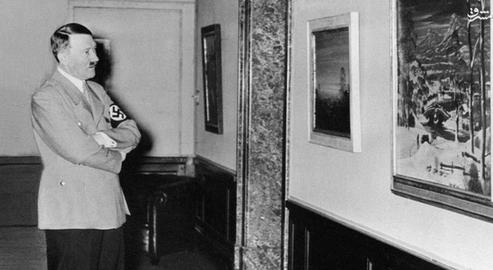
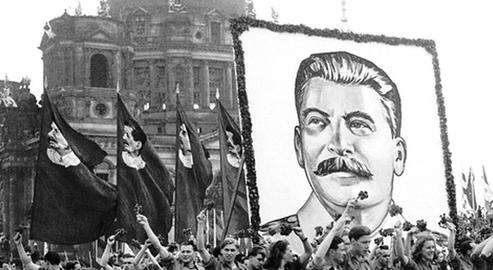
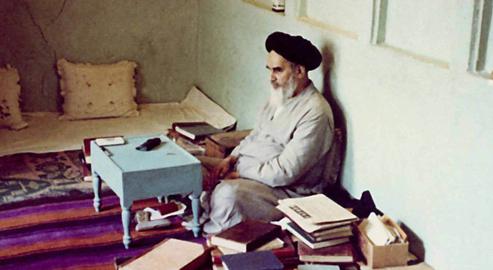
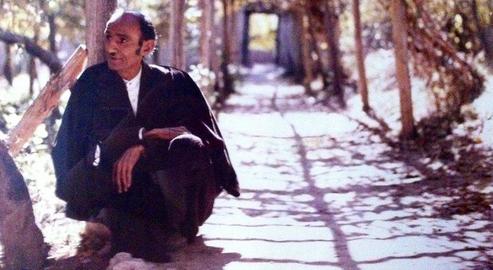
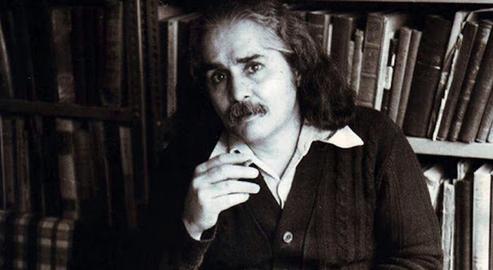
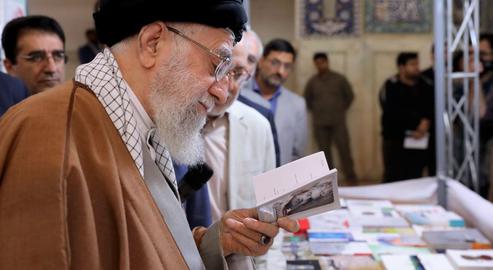
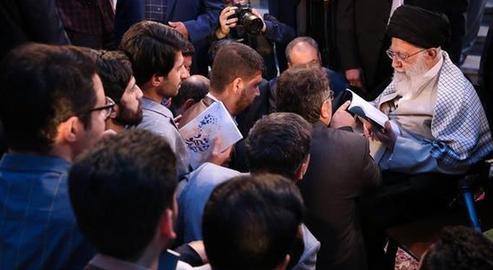
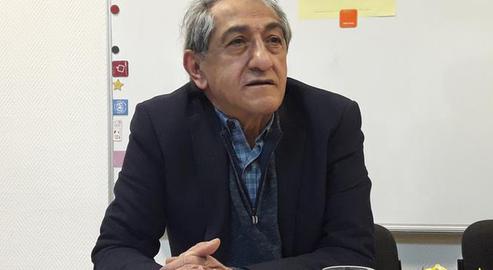




















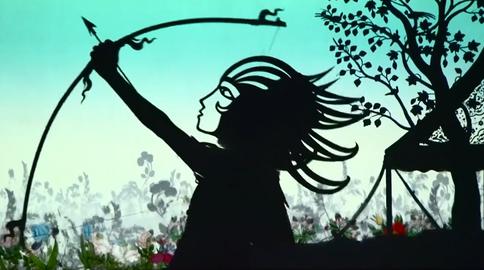
comments